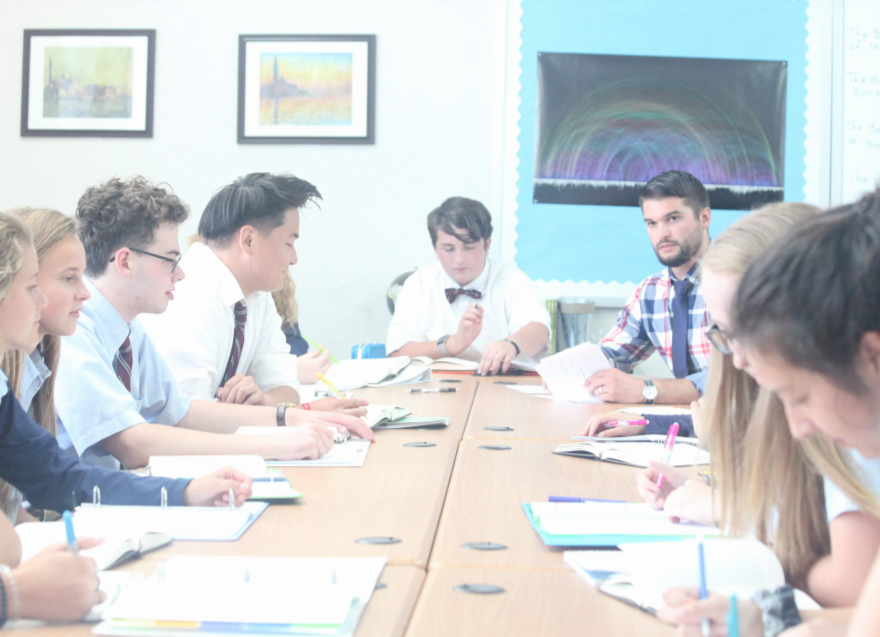Tag: in the classroom
-

The Classical Notion of Self-Education for Today
In her lecture at Oxford in 1947, Dorothy Sayers remarked, “Is it not the great defect of our education today, a defect traceable through all the disquieting symptoms of trouble that I have mentioned, that although we often succeed in teaching our pupils ‘subjects,’ we fail lamentably on the whole in teaching them how to…
-

Growth in the Craft: Fresh Techniques for Your Teaching Tool Belt
The sole true end of education is to teach men how to learn for themselves; and whatever instruction fails to do this is effort spent in vain. Dorothy Sayers, “The Lost Tools of Learning” As educators, we get excited when classrooms come alive: Hands shoot up. Eyes brighten. And body language across the room broadcasts that…
-

Apprenticeship in the Arts, Part 3: Crafting Lessons in Artistry
In the previous two articles in this series exploring Aristotle’s intellectual virtues, I laid out a fivefold division of the arts and a teaching method for training in artistry. My guiding hypothesis is that rethinking education through the Aristotelian paradigm of intellectual virtues will combat some of the typical problems of modern education. Bloom’s Taxonomy…
-

Apprenticeship in the Arts, Part 2: A Pedagogy of Craft
In my previous article in this series on Aristotle’s intellectual virtues, I discussed the general nature of artistry or craftsmanship under the heading of apprenticeship. Aristotle’s virtue of techne, often translated ‘art’, points to our human capacity to make things, to produce things in the world. Words like ‘artistry’ or ‘craftsmanship’ help to convey in…
-

Liberal Arts and the Transmission of Culture
In classical circles, we speak often about the importance of the liberal arts, over and against mere career-readiness skills, but we do not always elaborate. The reality is that career-readiness skills–skills like analyzing data, applying information technology, preparing for an interview, and completing tasks efficiently–are immensely helpful. The problem is not their usefulness, but their…
-

Cultivating the Discipline of Study
Our world is restless, this much is clear. As I have observed in previous blogs, the speed of the modern world is only accelerating as new technologies allow people to access whatever they seek at unprecedented rates. Surfing the web, in particular, has never been easier, and with it, the vulnerability to succumb to the…
-

Enjoying the Bible as Literature: 5 Strategies for Engaging Students in Reading the Canon
Guest article by Heidi Dean of Christian Schools International (See Jason’s article on CSI “7 Steps to Narrating the Bible”!) In biblical studies we seek to cultivate the habits of reverence, humility, submission to the text, and other qualities of faithful scholarship. But I propose another goal should rise to the top: enjoyment. The enjoyment…
-

“Teach Like a Champion” for the Classical Classroom, Part 2: Teacher-Driven Professional Development
There are two general approaches to professional development in education, one that is supervisor-driven and the other that is teacher-driven. In the supervisor-driven approach, the principal or dean is the primary driver for teacher development. The principal sets the goals, schedules observations, provides feedback, and identifies future growth areas. The strength of this approach is…
-

“Teach Like a Champion” for the Classical Classroom, Part 1: An Introduction
As classical educators look for tools and resources to strengthen their teaching practices, it can often be difficult to know where to turn. While the classical education renewal movement has led to a resurgence in a fresh vision for the purpose of education and even suggestions toward an ideal curriculum, the movement has not always…

